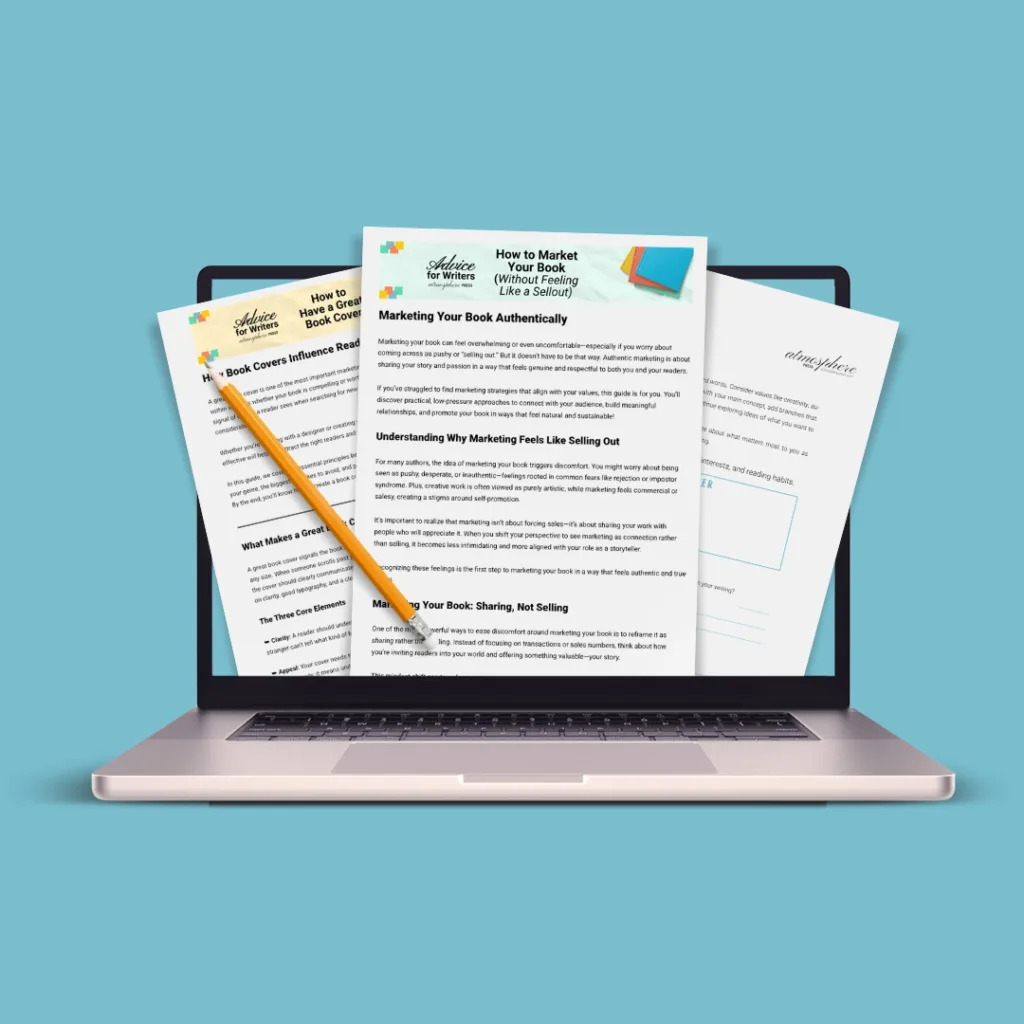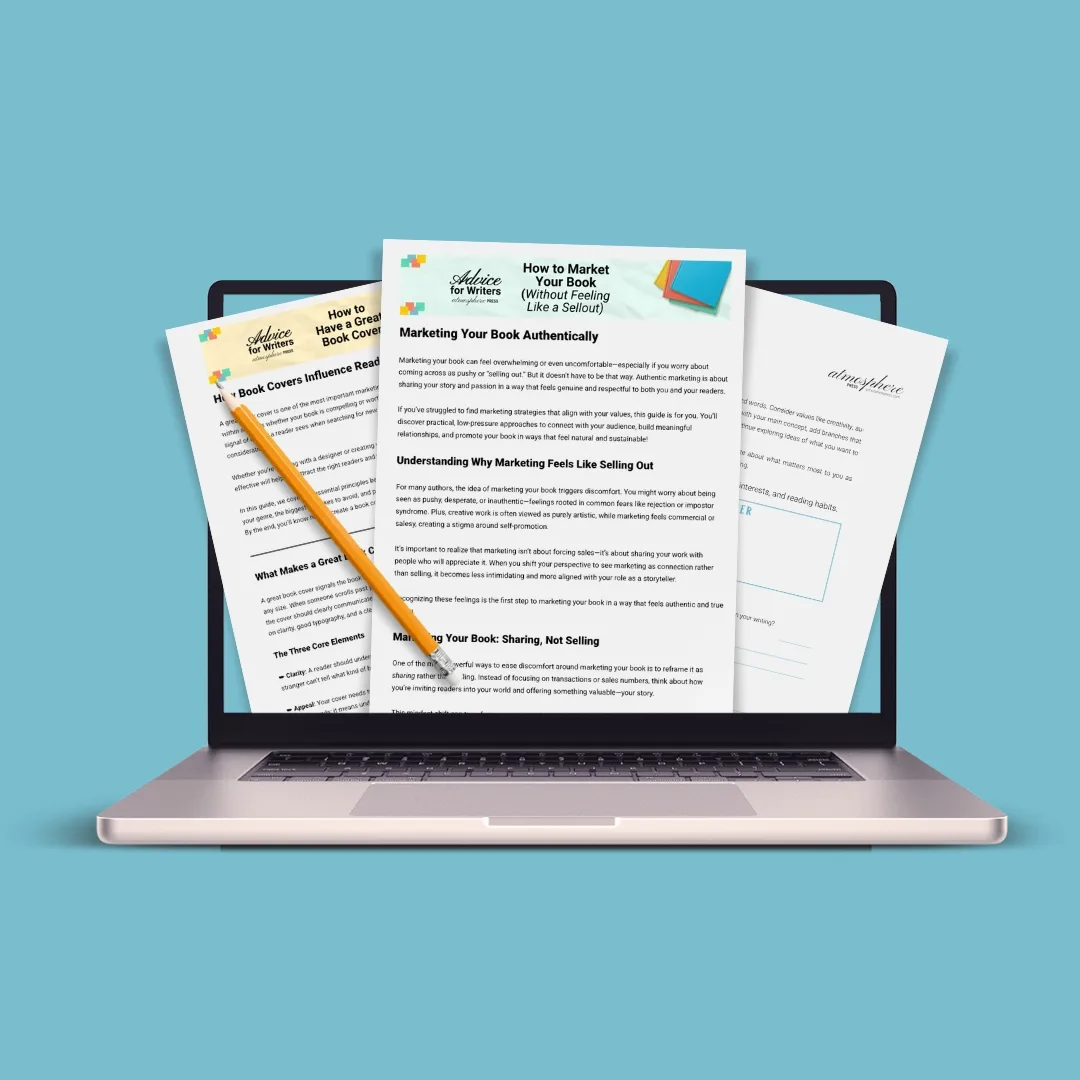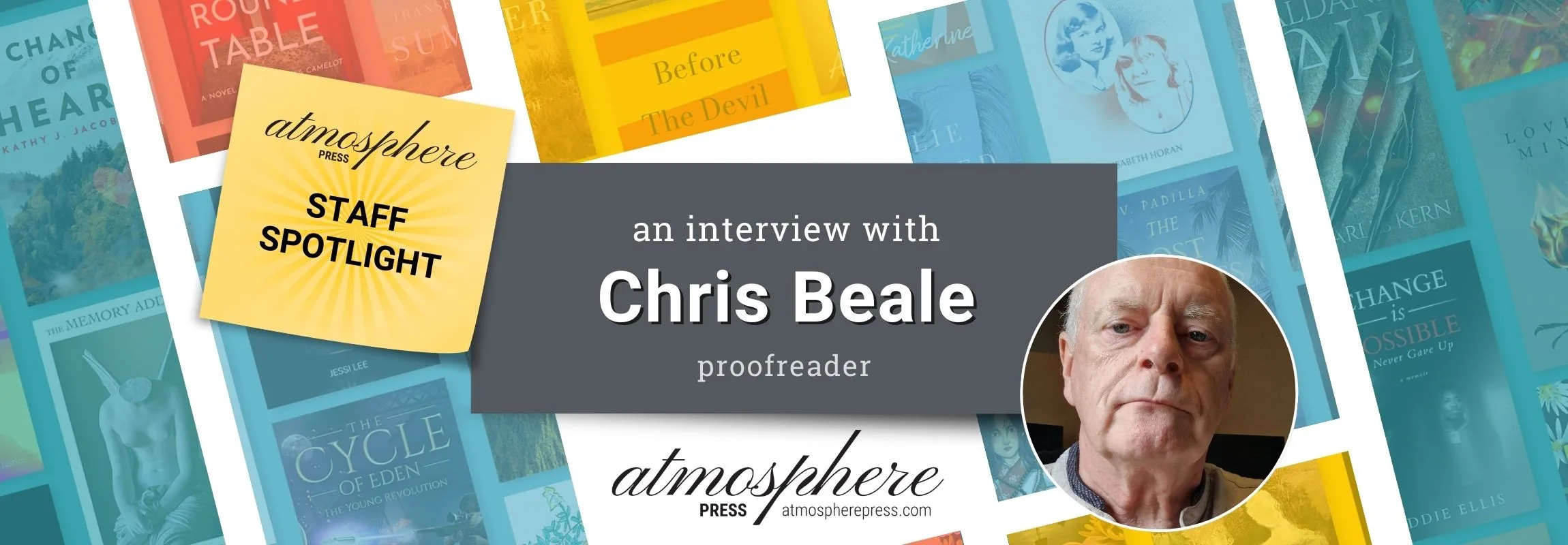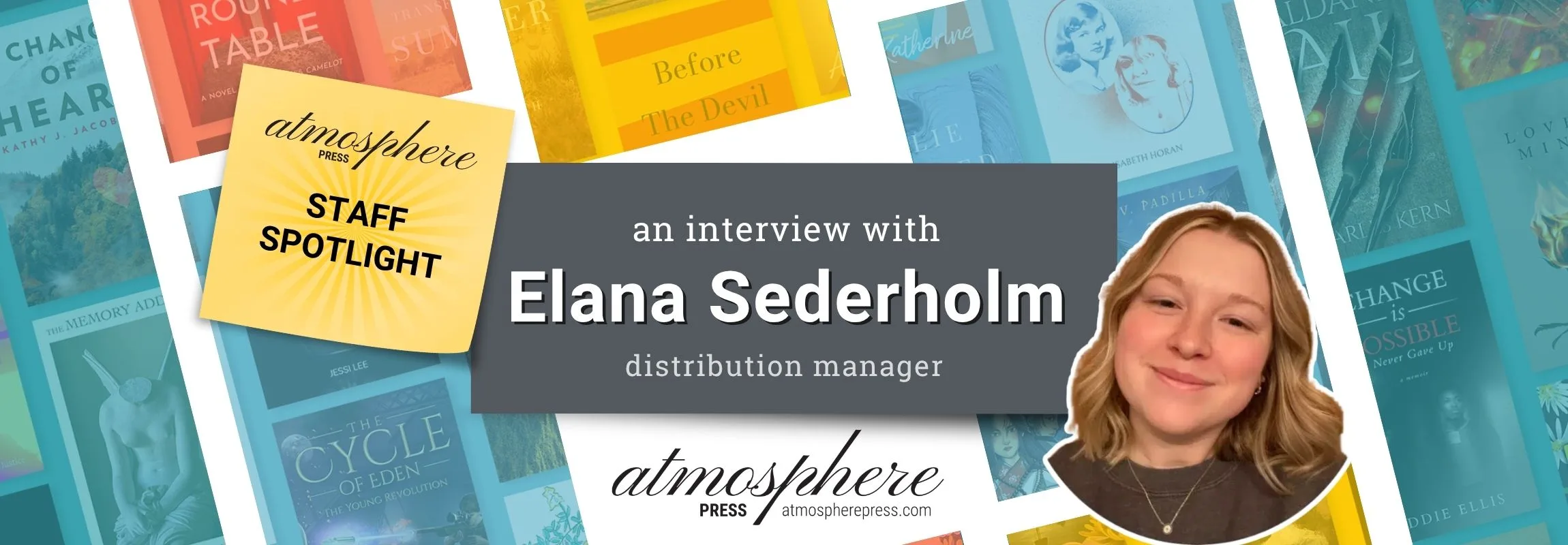I carefully review authors’ manuscripts to ensure clarity, consistency, and polish before publication. As a lifelong reader, I love being part of the creative process – getting a behind-the-scenes look at stories in progress and helping authors bring their work to a more professional, refined level. It’s incredibly rewarding to contribute to their journey.

Guidance for your writing journey
Your Advice for Writers resource articles.
Your Advice for Writers resource articles.
Writing a book comes with questions, challenges, and moments of doubt, but you don’t have to navigate them alone. The Advice for Writers resource articles break down the writing, publishing, and promotion process into clear, approachable guidance, so you can focus on telling your story with confidence.

Founded in Austin, Texas, Atmosphere Press combines professional publishing standards with local creativity, community values, and global reach. While our team is fully remote, we work with authors from around the world, delivering the same high-quality editorial, design, and marketing support to every project.
In this guide, you’ll learn how to write a workbook that transforms your non-fiction content into a practical, interactive learning tool. By the end, your readers will not just understand your ideas—they’ll know exactly how to put them into action.
Updating Your Author Brand for the New Year
As we step into 2025, a fresh wave of possibilities washes over the literary landscape. The publishing industry is a dynamic beast, constantly evolving to meet the changing needs and preferences of readers. For authors, this translates to an essential need: adapting your author brand to not just survive, but thrive, in this ever-changing world.
What Is a Pen Name? A Guide for Writers
If you’ve ever wondered what a pen name is and why writers use them, you’re in the right place. A pen name, also called a pseudonym, is a name an author chooses instead of their legal name when publishing. Writers use pen names for privacy, creative freedom, branding, or to write across multiple genres without confusing readers.
At Atmosphere Press, we offer four tiered hybrid publishing packages—Essential, Premium, Flagship, and Enterprise—designed to give authors everything they need to publish a high-quality book, reach readers worldwide, and retain full creative control.
Tips for Writing Accents Respectfully & Realistically
Writing in an accent means portraying a character’s speech patterns, pronunciation, or dialect in text to make dialogue feel authentic and reveal regional, cultural, or personal background. Done well, it adds realism and depth to your characters; done poorly, it can distract, confuse, or even offend readers.
Nonlinear Storytelling: Techniques for Writers
In this guide, you’ll learn how nonlinear storytelling can enhance your plot, step-by-step strategies for planning and organizing non-chronological narratives, common mistakes to avoid, and practical tips for keeping your story clear, engaging, and emotionally impactful—so your readers stay invested from the first page to the last!
Atmosphere Press Staff Spotlight: Elana Sederholm
We like to take the publication process one step at a time. There are a lot of moving parts behind the scenes of your book's creation, and the team tries to avoid confusion or miscommunication when we can. We know you're eager to reach the finish line, but we want to ensure that every step is completed before you get there. All of us at Atmosphere Press want you to be proud of our work!
What Is Writer’s Block and Why Does It Happen?
Writer's block, that dreaded creative roadblock, is an all-too-familiar challenge for authors. It can strike at any stage of the writing process, leaving us feeling frustrated and stuck. But fear not! By embracing a combination of mindset shifts, creative exercises, and practical techniques, you can break free from the chains of writer's block and unleash your creative potential.










